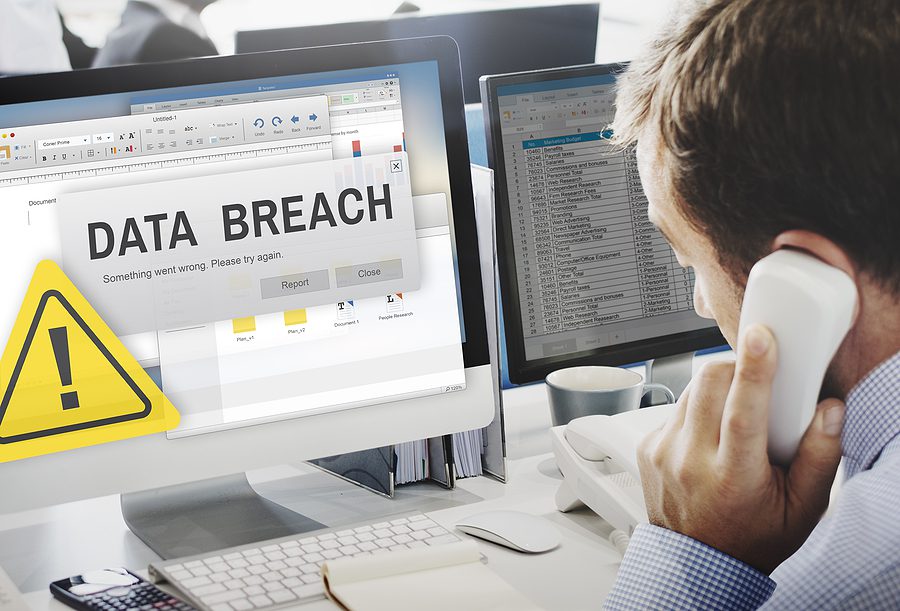Top 5 Data Breaches of the Decade: What Went Wrong and What You Can Do Right
You’re running a business, keeping clients happy, managing teams, and staying competitive. Then one day some sensitive information gets out, your operations are in chaos, and now you’re facing legal headaches, reputational damage, and a long road to recovery.
For thousands of organizations, it’s already happened.
Corporate data breaches aren’t just IT problems; they’re business problems. From brand erosion and customer trust issues to regulatory fines and stalled deals, the fallout can ripple through every part of your operations. While no company is bulletproof, understanding what went wrong in the worst breaches of the past decade can help you make smarter decisions in your own business.
Let’s look at five of the most impactful breaches in recent memory; what triggered them, what they cost, and what steps you can take now to keep your business from becoming the next cautionary tale.
1. Yahoo (2013–2014, Disclosed 2016)
Yahoo experienced two massive data breaches, one in 2013 and another in 2014—both of which weren’t publicly disclosed until 2016. The 2013 breach ultimately affected all 3 billion user accounts, making it the largest known data breach in history. The 2014 breach impacted an additional 500 million accounts.
Hackers gained access to names, phone numbers, email addresses, birthdates, hashed passwords (using outdated encryption methods), and in some cases, unencrypted security questions and answers.
Why it matters:
This wasn’t just a case of bad luck—it was a prolonged failure to detect and respond to a critical security issue. Worse, Yahoo delayed disclosure for years, eroding public trust. The breach also had real financial consequences: it led to a $350 million reduction in Yahoo’s sale price to Verizon.
More than that, it set a chilling precedent: if a major tech company with billions of users couldn’t protect its data, no one is immune to a breach.
2. Aadhaar (2018)
What went wrong: Aadhaar, India’s massive biometric ID system, holds personal information on over 1.1 billion citizens. In 2018, it was revealed that unauthorized access to the system was being sold online for just a few bucks. The potential for access to biometric-linked data raised serious concerns—even if biometric databases themselves were not conclusively breached.
Why it matters:
This wasn’t just a leak of email addresses. It was biometric data, something you can’t change or reset. The breach shook global confidence in how governments manage sensitive information and raised tough questions about the risks of centralized data systems.
3. Equifax (2017)
What went wrong: In one of the most high-profile breaches ever, Equifax failed to patch a known vulnerability in its software. Hackers exploited that hole and made off with personal data from 147 million Americans; nearly half the U.S. population. That data included Social Security numbers, driver’s license details, and credit card information.
Why it matters:
This wasn’t just sloppy IT. Equifax is a company that made its money off your financial identity. When that identity was stolen on their watch, people were furious, and rightly so. The fallout included Congressional hearings, executive resignations, and a $700 million settlement.
The breach was a painful reminder that sometimes the gatekeepers are the weakest link.
4. MOVEit Transfer Supply Chain Attack (2023)
What went wrong: MOVEit, a popular file transfer tool used by organizations worldwide, became the target of a sophisticated supply chain attack. Hackers found a vulnerability and exploited it to steal data from over 2,000 organizations, affecting more than 90 million people. Victims included hospitals, banks, government agencies, and schools.
Why it matters:
This breach exposed a major flaw in how interconnected today’s systems have become. One vendor’s mistake turned into a catastrophe for hundreds of organizations who trusted them. It’s a wake-up call: even if your own systems are locked down, a partner’s weak link can still open the door to disaster.
5. Facebook (Cambridge Analytica & Other Leaks, 2018–2019)
What went wrong: Facebook didn’t suffer a hack in the traditional sense; it allowed third-party developers too much access for too long. In the Cambridge Analytica scandal, the data of up to 87 million users was harvested and used for political profiling. Later, another leak exposed phone numbers and personal details of over 500 million users.
Why it matters:
The damage wasn’t just technical; it was personal. People began to question how much data they were handing over to platforms and how it could be used to manipulate their behavior. It led to a tidal wave of public backlash, fines, and calls for increased regulation in the tech industry.
What Can You Do Right?
After reading through these five disasters, it’s easy to feel powerless and hope for the best. Believe it or not there are things you can do—whether you’re a business owner, an employee, or just a regular person trying to protect your digital life.
Here’s a short list of practical steps:
- Think before you share: Whether it’s your birthday or your fingerprint, ask yourself, ‘Does this service really need it?’
- Update and patch everything: Most successful attacks exploit old vulnerabilities—set software to update automatically whenever possible.
- Use strong, unique passwords: A breach on one site shouldn’t be a free ticket into the rest of your accounts.
- Limit third-party access: For businesses, audit who has access to your systems, and what data they can access.
- Shred physical data: Information is not all digital. Old paper files, hard drives, and discarded devices can still pose serious risks.
Where to Go From Here
Whether it’s a forgotten email provider, a credit bureau, or a global tech giant, the lesson is the same: when data isn’t protected, real people pay the price.
While technology will never be 100% secure, good habits and the right partners can make a huge difference. That’s where companies like AccuShred come in. If your business handles sensitive information, physical or digital, proper data destruction isn’t optional—it’s necessary.
From secure document shredding to hard drive destruction, AccuShred helps reduce your risk before your data ever falls into the wrong hands. Don’t wait until a breach puts you on the front page. Stay ahead of the problem. Contact us to learn how we can help you protect your information today.








